
FT columnist, reporter & associate editor, writing about work, technology & economics. Opinions mine, not the FT's https://t.co/44DOXEaMOC
3 subscribers
How to get URL link on X (Twitter) App


 People report working harder, faster, to tighter deadlines than in the past (chart from @resfoundation)
People report working harder, faster, to tighter deadlines than in the past (chart from @resfoundation) 

 That's not to say the public is ignorant about the economy or indifferent to it. People have a very good understanding of some economic concepts & follow them closely. Most notably interest rates and inflation.
That's not to say the public is ignorant about the economy or indifferent to it. People have a very good understanding of some economic concepts & follow them closely. Most notably interest rates and inflation. 

 It’s in this context that cabinet is debating not updating benefits by inflation. Trouble is, people are already sinking. Making the poor poorer is a false economy right now, even if all you care about is growth & the public finances.
It’s in this context that cabinet is debating not updating benefits by inflation. Trouble is, people are already sinking. Making the poor poorer is a false economy right now, even if all you care about is growth & the public finances. 

 Do Brits work among the lowest hours? No.
Do Brits work among the lowest hours? No. 

 The shortage of social care workers makes perfect sense. These are tough jobs but they no longer pay a premium to other low-paid jobs with better conditions. In 2012/13, care workers earned 13p an hour more than retail workers. By 2019/20, they earned 21p less.
The shortage of social care workers makes perfect sense. These are tough jobs but they no longer pay a premium to other low-paid jobs with better conditions. In 2012/13, care workers earned 13p an hour more than retail workers. By 2019/20, they earned 21p less. 

 Other countries don't do this. The evidence is clear that the longer you ban people from working, the harder they ultimately find it to get a job, be healthy, learn the language, integrate, get off benefits.
Other countries don't do this. The evidence is clear that the longer you ban people from working, the harder they ultimately find it to get a job, be healthy, learn the language, integrate, get off benefits. 

 Unlike after the financial crisis, the unemployment rate has dropped incredibly quickly & is now 4.1 % - close to pre-Covid historic lows. The fact employers are suffering labour shortages is not because the newly unemployed are being too picky.
Unlike after the financial crisis, the unemployment rate has dropped incredibly quickly & is now 4.1 % - close to pre-Covid historic lows. The fact employers are suffering labour shortages is not because the newly unemployed are being too picky. 

 Remember when Sainsbury's and Asda wanted to merge? Their explicit justification was that, by becoming an even more powerful buyer, they could squeeze even lower prices from suppliers. about.sainsburys.co.uk/~/media/Files/…
Remember when Sainsbury's and Asda wanted to merge? Their explicit justification was that, by becoming an even more powerful buyer, they could squeeze even lower prices from suppliers. about.sainsburys.co.uk/~/media/Files/… 

 Driving hours are limited by law (9 hours a day, 10 right now due to shortage) but the days are much longer (loading, unloading, waiting, enforced breaks, etc) Drivers say 13 to 15 hours are typical. It's exhausting.
Driving hours are limited by law (9 hours a day, 10 right now due to shortage) but the days are much longer (loading, unloading, waiting, enforced breaks, etc) Drivers say 13 to 15 hours are typical. It's exhausting. 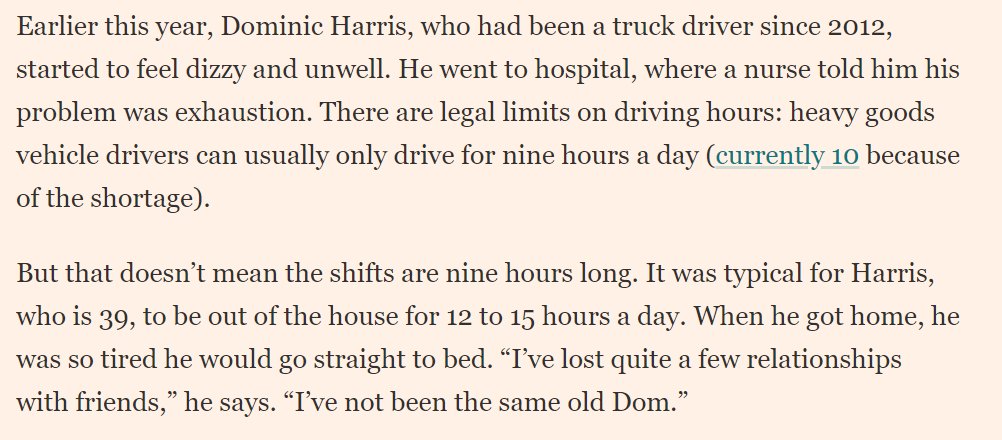

 In this sector, the era of free movement has shaped everything from the rhythm, security and location of work to the prices we have grown used to in the shops.
In this sector, the era of free movement has shaped everything from the rhythm, security and location of work to the prices we have grown used to in the shops. 

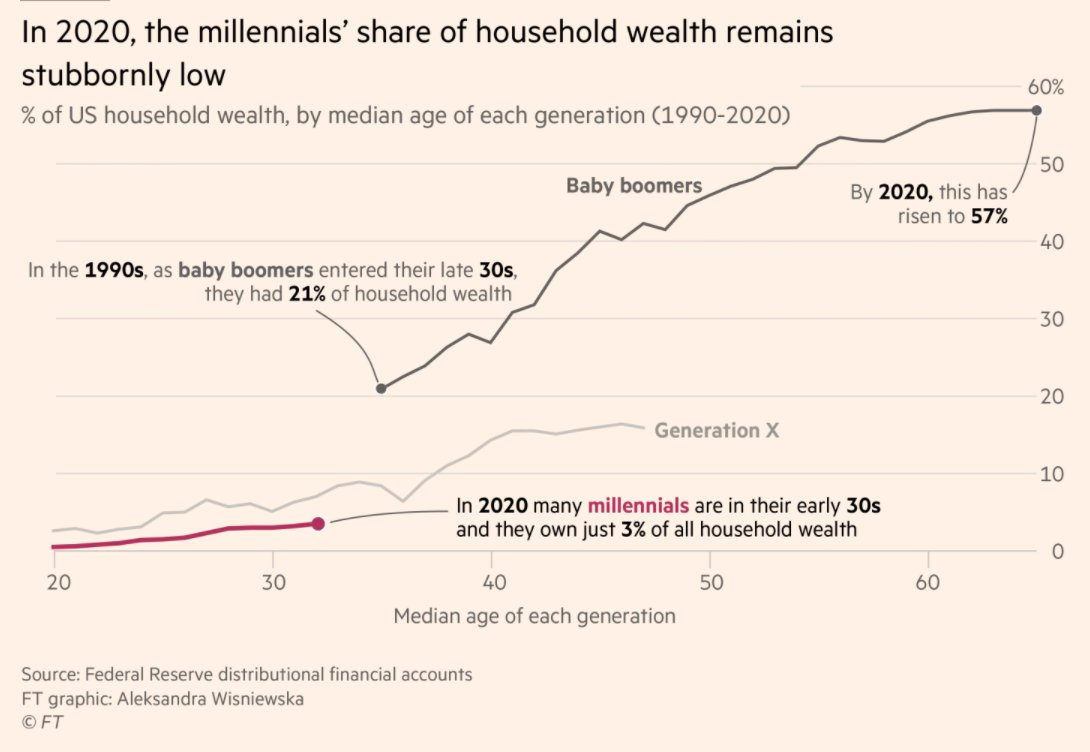
 Wealth amassed by older generations (see chart above) will of course flow down to younger ones. But that will exacerbate inequality between those with wealthy parents and those without. Young people feel this divide intensely.
Wealth amassed by older generations (see chart above) will of course flow down to younger ones. But that will exacerbate inequality between those with wealthy parents and those without. Young people feel this divide intensely. 

 They expected hard work, long hours, and the minimum wage. But the problem the faced was the opposite of too much work: the ones we spoke to were being deprived of it for not meeting productivity targets.
They expected hard work, long hours, and the minimum wage. But the problem the faced was the opposite of too much work: the ones we spoke to were being deprived of it for not meeting productivity targets. 

 Piece rates are still common, but min wage law means farmers must top up the pay of pickers whose productivity is too low. Supermarkets have exerted relentless pressure on price & quality standards. The result is has been a HUGE intensification of this job.
Piece rates are still common, but min wage law means farmers must top up the pay of pickers whose productivity is too low. Supermarkets have exerted relentless pressure on price & quality standards. The result is has been a HUGE intensification of this job. 

 Philip Hammond's spring speech 2019 (the last "normal" speech of this kind, I think?) rattles off a string of wonderful stats about the "remarkably robust" economy. All are technically correct. But still...
Philip Hammond's spring speech 2019 (the last "normal" speech of this kind, I think?) rattles off a string of wonderful stats about the "remarkably robust" economy. All are technically correct. But still...

 Some examples of other countries, versus the UK ft.com/content/51aea2…
Some examples of other countries, versus the UK ft.com/content/51aea2… 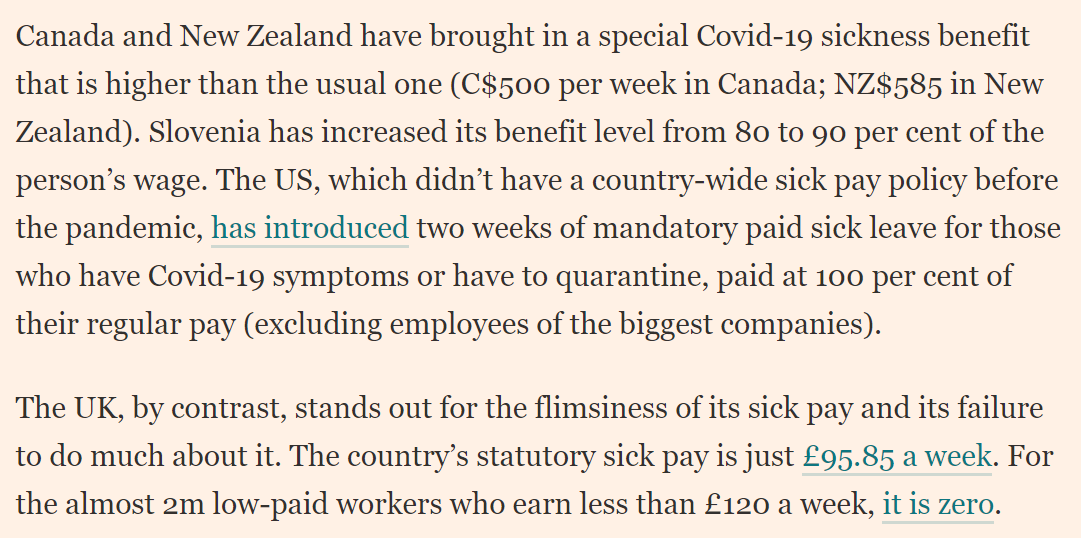
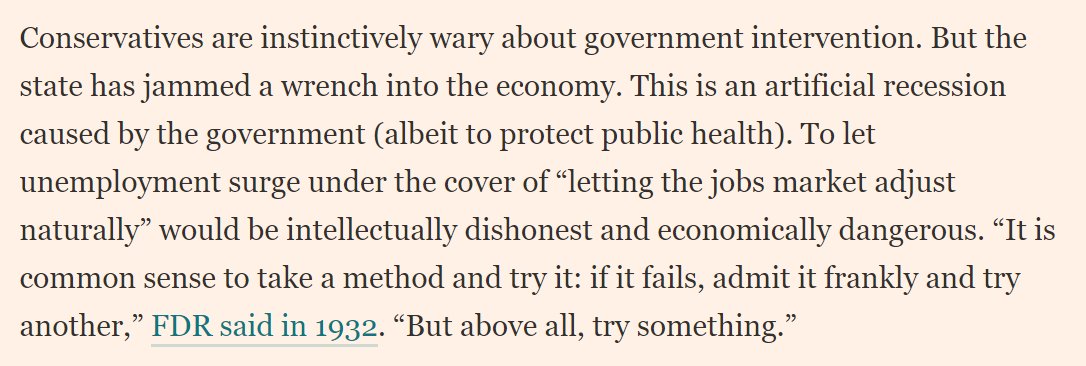
 Meanwhile there aren't enough new jobs for people to "reallocate" into.
Meanwhile there aren't enough new jobs for people to "reallocate" into. 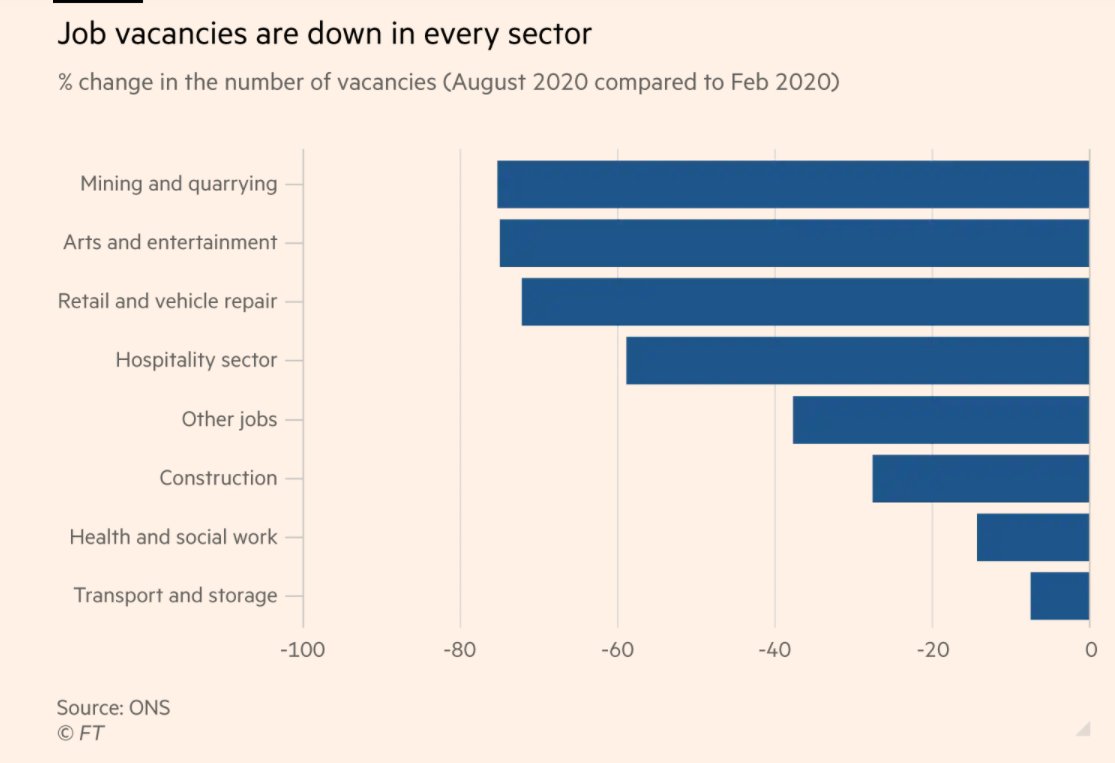

 Uber and Lyft say they'll have to raise prices by 20% to 120% in California if forced to treat drivers as employees. That's an indication of how much money they've been saving by ignoring the laws that apply to everyone else...
Uber and Lyft say they'll have to raise prices by 20% to 120% in California if forced to treat drivers as employees. That's an indication of how much money they've been saving by ignoring the laws that apply to everyone else...

 Are they even disincentivised, really? Depends on the details of each country's furlough scheme, but if you know they writing is on the wall for your job, you're still incentivised to get a new one if you can. People aren't lazy dummies.
Are they even disincentivised, really? Depends on the details of each country's furlough scheme, but if you know they writing is on the wall for your job, you're still incentivised to get a new one if you can. People aren't lazy dummies.
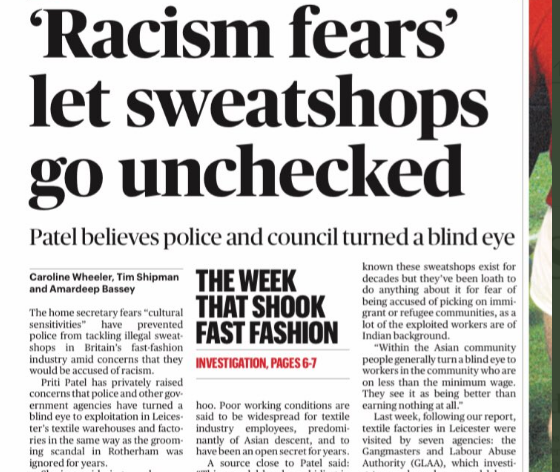
 HMRC is responsible for enforcing the minimum wage. It doesn't do enough inspections of high-risk workplaces, penalties are paltry & prosecutions rare. prospectmagazine.co.uk/magazine/a-min…
HMRC is responsible for enforcing the minimum wage. It doesn't do enough inspections of high-risk workplaces, penalties are paltry & prosecutions rare. prospectmagazine.co.uk/magazine/a-min… 